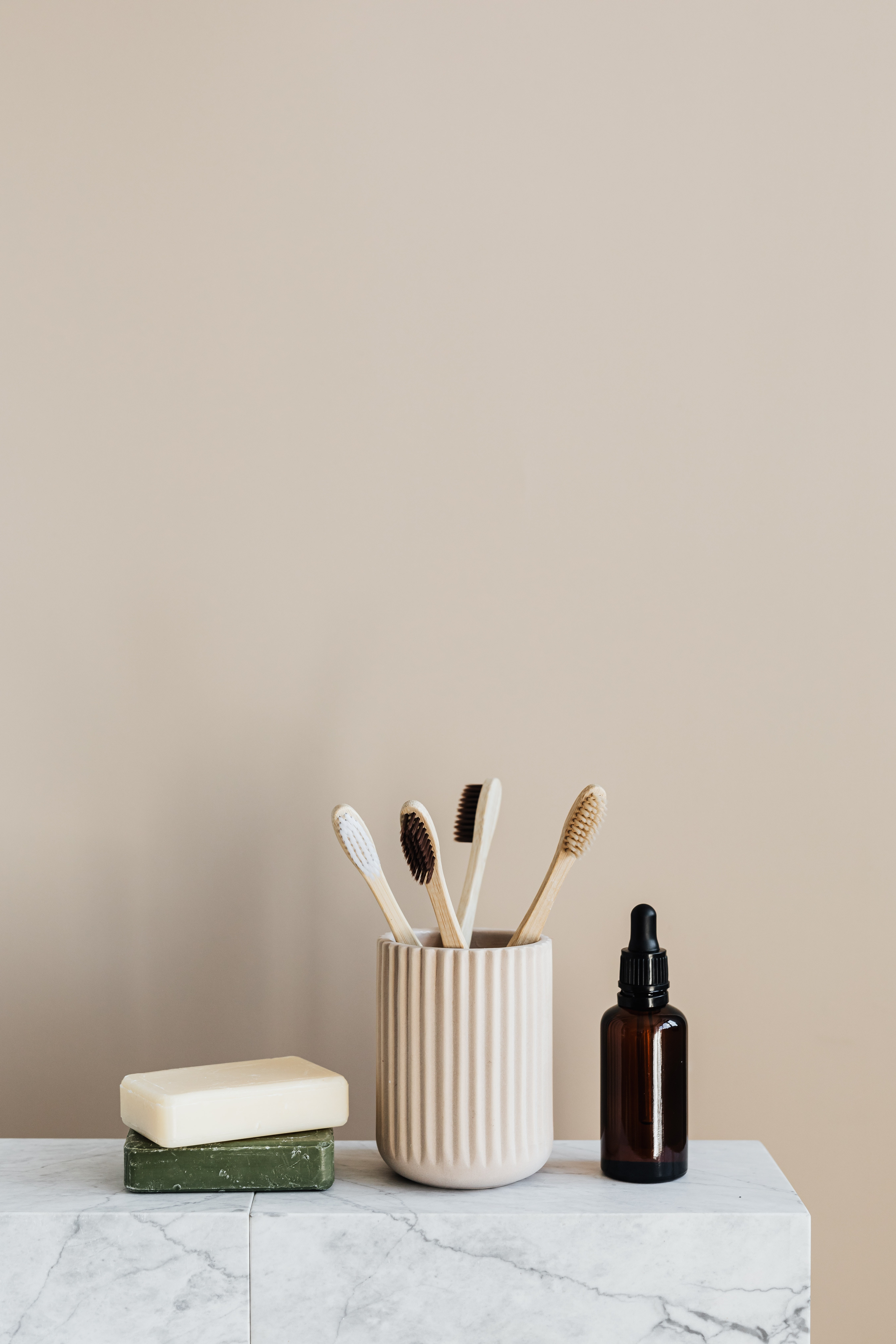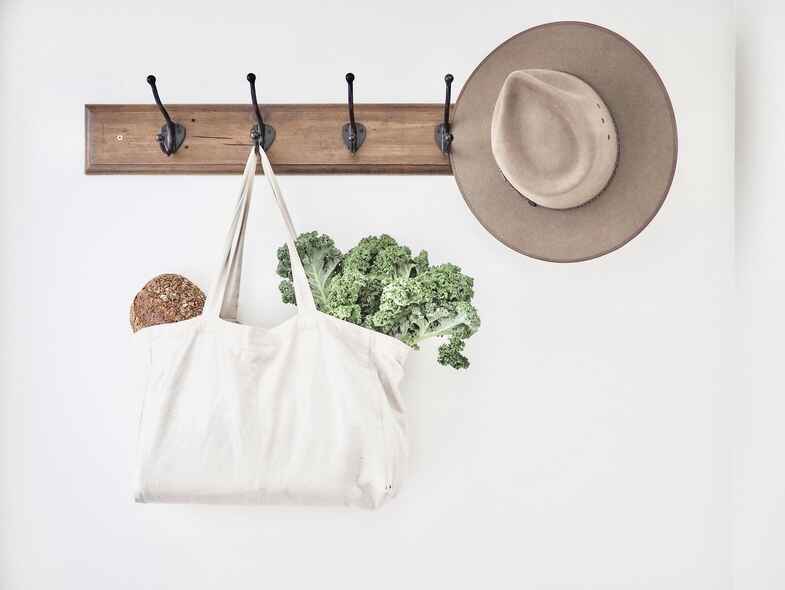Sustainable living describes a lifestyle that attempts to reduce an individual or society’s use of the earth’s natural resources, and one’s personal resources as everything we do has an impact on the planet, from the food we eat, the clothes we wear and the transport we use.
It can seem difficult trying to reduce your environmental footprint, but when you break it down into small steps, you realise you have more power than you thought and there is no better and easier place to start than your own home.
Whether it’s reducing how much energy you use or upping your recycling game, there are many small, simple ways you can be more conscious of the environment, sustainable and save yourself a pretty penny in the process.
Remember, small changes can make a big difference.
Reduce the use of plastics
One of the easiest and most effective ways we can be more sustainable is by reducing our use of plastic. On average, Australians use 130kg of plastic per person each year, according to WWF, and only 9% of that is recycled. Most plastic items take hundreds, if not thousands of years to biodegrade, and can cause irreparable damage to land, oceans and wildlife. Here are a few things you can do today:
- Avoid single use plastic bags and take your own reusable bag to the supermarket.
- Say no to plastic straws. Nowadays, you can find reusable straws made of paper, metal, bamboo and silicon. They’re cheap to buy and you can reuse them at home or store in your bag or pocket when you go out.
- Avoid excessive food packaging, especially at the supermarket. Instead of using the free, single use bags when packing your fruit and vegetables, bring your own bag from home.
- Stop using cling film and plastic bags to cover and wrap food items. Opt for storage containers or reusable silicone or beeswax wraps.
- Invest in a reusable cup or bottle when purchasing your regular coffees, smoothies or juices at your local café. All those takeaway cups and lids can add up quickly.
- Think twice before you buy disposable plastic razors and toothbrushes. Opt for materials that are long lasting and biodegradable, like bamboo.

Get serious about recycling
These days, there’s really no excuse for not recycling, especially when we have access to recycling bins and regular collection services across Australia. Here are some recycling tips to keep front of mind:
- Be sure to separate household waste from recyclables, such as glass, paper, cardboard, plastic bottles and containers, aluminium cans, foil, and steel tins. If you’re not sure what’s what, head online to the Government’s ‘Recyclopaedia’ for an A to Z guide to recycling, reuse and disposal.
- Make an effort to empty liquids out of containers and wipe and scrape food off packaging before you recycle them, otherwise soiled items could risk everything going to landfill. Try to save water where you can, but if you must rinse your recyclables to get rid of food waste and scraps, then add them to your daily dish washing where they can be cleaned with the water you are already using.
- Use a tub or basket to separate and store recyclables before taking them to your recycling bin. Remember, don’t put your recyclables in plastic bags as they’re more likely to end up in there too.
- Don’t throw your food scraps, green waste or garden clippings in with recyclables, put them in a compost bin.
Save your energy
Government data reveals that while the nation’s capital has some of the lowest residential electricity and gas prices across the country, it also has high levels of energy use, which is not only bad for the environment, but also bad for your wallet. Here’s how you can save energy, increase efficiency, cut down on usage and reduce your bills:
- Start by switching household appliances and electronic equipment off at the wall when they’re not in use. Lights, TVs, heaters, air conditioners, sound systems, computers, microwaves and coffee machines do not need to be on 24/7. Even though these appliances may not always be in use, they are still using energy if the wall switch is turned to ‘on’.
- Do you know if your appliances are energy efficient? According to the ACT Government, appliances can account for around 30% of home energy use so it might be time to reassess your energy usage and efficiency. If you’re in the market for new appliances, opt for those with a high energy efficiency rating. The more stars advertised on the product, the more energy efficient it is.
- A simple way to get smart with your home’s energy usage is to look at your lighting. For rooms and lamps, choose energy-efficient bulbs such as Light Emitting Diode (LED) and Compact Fluorescent Lighting (CFL).
- When using your washing machine, opt for a cold wash which uses less energy. With the warmer weather on the way, avoid using the clothes dryer and use a clothes drying rack instead.
- Consider a new energy provider. Go shopping for a better rate and choose a provider that offsets its carbon footprint or takes their energy from renewable sources such as wind and solar.
Repair, reuse and recycle
More than 501 million kilograms of unwanted clothing and 88% of the 4 million computers and 3 million TVs purchased in Australia every year will end up in landfill. It’s a sad reality, but fast fashion and cheap manufacturing means we can replace items as quickly and as cheaply as we bought them, even if we don’t need to. Here’s how you can get more life out of your clothes and electronics:
- Think twice before buying new clothes. Can something be repaired with a new button, zip or patch? If something is beyond repair, visit a charity store or vintage boutique before buying brand new. There are many reputable shops, online retailers and sustainable shopping outlets that sell good quality clothing and designer labels that are as good as new.
- Donate old clothes and shoes to charity so others can get use from them. If items cannot be donated, then use old clothes as cleaning cloths around the house or in the garage or garden shed. If something must be thrown out, then put it in your household waste bin, not in the recycling bin.
- If you have broken electronic items and whitegoods, try to prolong their life by getting them repaired before you throw them away. Some charities, private recyclers and retailers will repair and recycle your items or sell them for parts, so try to find one in your local area. Likewise, some manufacturers of batteries, computers and cartridges have their own recycling programs, so be sure to investigate these before throwing items away.
Lead image: The Sustainable Life Co





